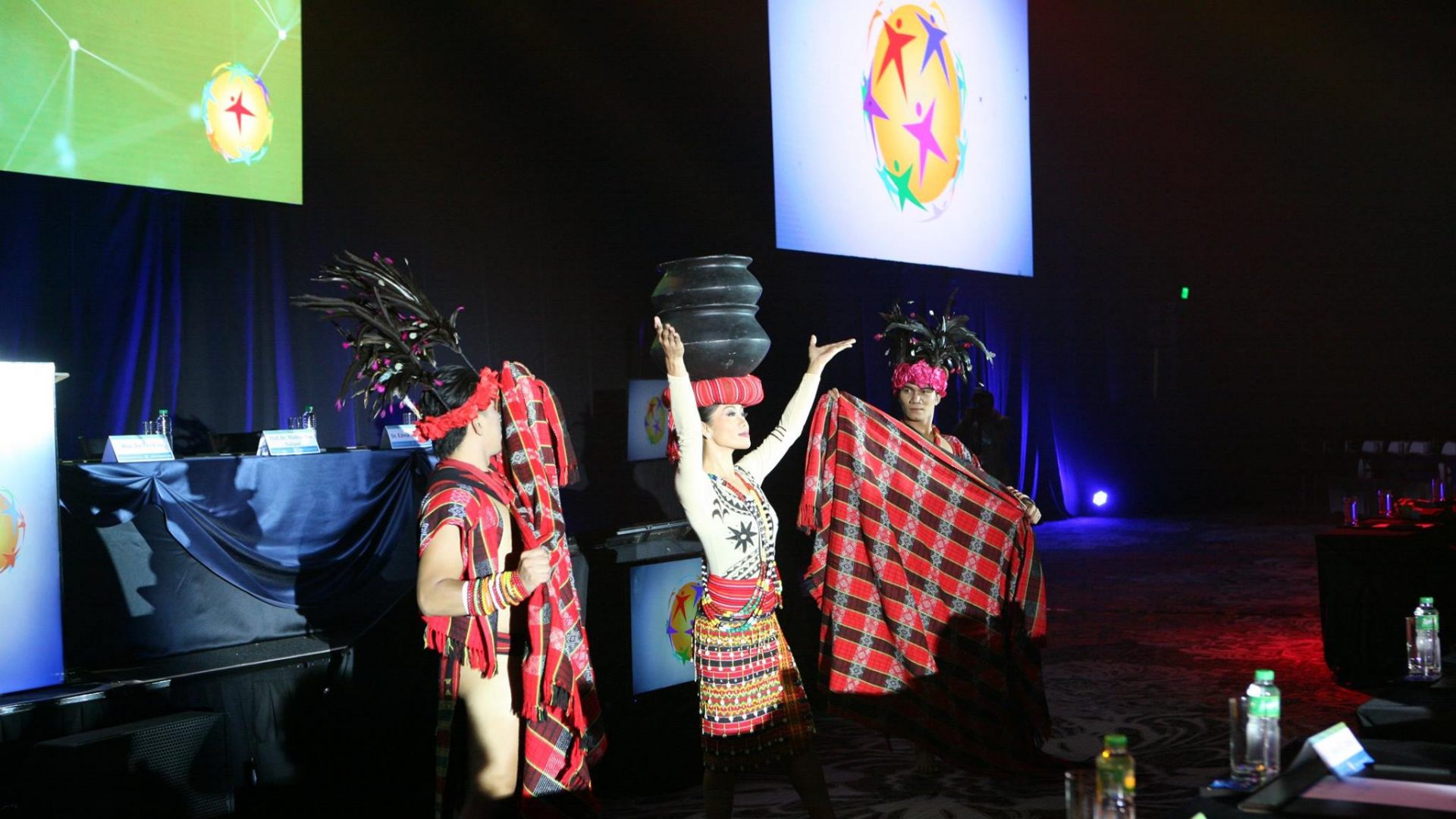VISION
All people, regardless of race, nationality, religion or culture, are members of One Family under God
MISSION
The Global Peace Foundation is an international non-sectarian, non-partisan, nonpro t organization which promotes an innovative, values-based approach to peace-building, guided by the vision of One Family under God. We engage and organize a global network of owners who develop community, national, and regional peace building models as the foundation for ethical and cohesive societies.
Global Peace Values Framework:
The Global Peace Values Framework describes the process through which we can develop into responsible, virtuous global citizens and leaders.
The starting point is motivation. The noblest motivation is Living for the Greater Good. The higher the motivation, the greater your aspiration. In other words, you Dream Big. Taking action to substantiate your dream is the natural expression of Ownership. Inspiring and engaging others to own the dream and participate in its fulfillment is Teamwork.
THE ESSENTIAL ELEMENTS OF GPF’S UNIQUE APPROACH TO PEACEBUILDING:
GPF’s unique approach to peacebuilding interweaves three essential elements into models that are adapted to the local culture, tradition, and situation to most effectively address the local, national or region’s set of issues.
The three essential elements of the GPF approach to peacebuilding are:
1.INTERFAITH LEADERSHIP
• Most people understand and discover meaning in life through various spiritual paths. While there may be great differences in religious doctrines and liturgies, what is most important is how people live every day. Basic human values –
respect and compassion for all people, honoring the family, living with integrity – are vitally important to people of all faiths and backgrounds. Thus it is essential that faith leaders stand together and advocate for such time-honored principles and shared values in society at large.
• Addressing the most critical problems facing humanity, including con ict and corruption, requires fundamental change in heart and spirit. Political agreements or economic incentives alone cannot compel someone to forgive or ask forgiveness. Faith leadership, which appeals to the highest ideals and aspirations of human beings, is needed to help bring about such change.
• Because faith traditions address the larger questions of life – who we are and how we should live – religious identities are often more fundamental than nationality or ethnicity. Recognizing that many con icts are attributed to religious causes, people of faith must show by example that they can transcend differences based on our common heritage and shared values as one family under God.
2. STRENGTHENING FAMILIES
• The family is the “school of love and virtue” in which the character and heart of each individual is formed at the deepest level. The ideal institution for teaching and learning values is a healthy family headed by a father and mother. The family
is meant to be the most intimate environment in which every child comes to know his or her intrinsic value through the unconditional love of parents. The vital relationships in the extended family help to shape the child’s larger sense of identity through imparting the essence of culture and tradition.
• Relations within the family, between husband and wife, parents and children, and among siblings are instrumental for developing the virtues that underlie all positive social relations. People learn to relate with all of humanity in the extended family.
• Future citizens with clear ethical values and an active sense of social responsibility are cultivated within strong families and vibrant communities. From the immediate family to the extended family model, and carrying forth to the entire human family, “family” is at the heart of One Family under God.
3. BUILDING A CULTURE OF SERVICE
• The values formed in the family are meant to be practiced through a lifestyle of serving the greater good. A culture shaped by citizens who live in this way is naturally ethical, inclusive, prosperous and truly free.
• Service provides tremendous opportunities for experiential learning which can cultivate leadership and good character. Through international and cross-cultural service, we engage in meaningful ways with others, forming deep bonds of heart that transcend all differences. We learn in profound, personal and often life-changing ways that we are, in fact, one family under God. The insight gained that we are one human family makes us aware that the world is our common home. Thus we are responsible to respect, protect, and live in harmony with the natural environment. Serving the greater good fosters a social environment in which our innate creativity can nourish, enabling us to create value, solve problems, and build a world where all people can have a meaningful and fulfilling life.
|
GPF FOCUS AREAS The three essential elements of the GPF Approach to Peacebuilding are interwoven to develop programs that address the following GPF Focus Areas. • Social Cohesion and Peacebuilding: Builds broad awareness of the central importance of universal principles and shared values as the basis for social cohesion and peacebuilding. • Moral and Innovative Leadership: Develops a multi-sector movement of moral and innovative leaders who work in partnership to address the critical issues of con ict and corruption in communities, nations, and regions. • Empowering Families and Youth: Empowers families as the primary means of instilling values and promotes an education culture that fosters character and creativity, to guide youth to become ethical global citizens. |
|
• Catalyst for Transformation: Builds comprehensive, collaborative models of sustainable community and national development that enable all to achieve spiritual and material well-being.
|

